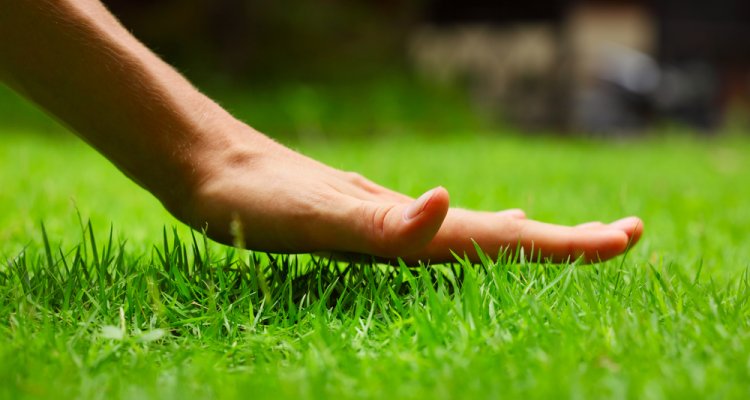Wageningen University & Research Secures Prestigious Grant for Plant Tactile Sense Research
You probably don’t realise it when you walk on grass: the blades of grass not only sense the pressure of your feet, but adjust their growth accordingly. But how do plants register forces without a brain and central nervous system? How that works is what the GreenTE (Green Tissue Engineering) consortium is going to research over the next 10 years. The group has been awarded a €22.8 million Gravitation grant for this purpose. The consortium is led by Prof. Dolf Weijers and Prof. Joris Sprakel of the Laboratory of Biochemistry at Wageningen University & Research.
“It has been known for more than 100 years that plants have a sense of touch,” says Professor of Mechanobiology Joris Sprakel, “They sense touch or wind, they register when a fungus tries to invade. Grass, for example, perceives whether you walk on it and that then triggers all kinds of processes in the plant that lead to increased strength. But how exactly does that work? That’s really still a blind spot in our knowledge.”
“That is the first big challenge in this programme,” adds Professor of Biochemistry Dolf Weijers. “If we better understand how a plant perceives that fungus is invading, we might also be able to help them become more resilient. That is the second challenge. Using the mechanical defences of plants is an area that is totally untapped in all attempts to make plants more resistant to diseases. As such, this research could boost the development of food crops that are more resistant to plant diseases.”

The Green TE consortium is a composite of a wide range of scientific expertise. Dolf Weijers: “This is a complex biological issue that you cannot answer without knowledge of physics, chemistry, scientific modelling and so on. This is knowledge that is not represented in a single institution, but in which the Netherlands as a whole excels. We are very much looking forward to collaborating in this programme with scientists at the universities of Utrecht, Nijmegen, Eindhoven, Groningen, Amsterdam (VU) and Leiden. To work together on new knowledge in such an interdisciplinary way: I think that’s magical.”
Interdisciplinary collaboration for a complex issue: I think that’s magical
Greater understanding of how the world works
WUR rector magnificus Carolien Kroeze is extremely proud: “To be awarded Gravitation funding is a very prestigious achievement. It is the first time a research project led by WUR scientists has been awarded the subsidy. The beauty of this research is that it goes to the heart of our mission: ‘to explore the potential of nature, to improve the quality of life’. Dolf, Joris and all their colleagues are going to do exactly that in the coming years. I wish them every success and I look forward eagerly to the first results.”
Gravitation premium
With Gravitation, the government encourages excellent research in the Netherlands. The programme is for scientific consortia that have the potential to rank among the world’s best in their field. The programme is a form of direct government research funding. The Ministry of Education, Culture and Science has asked Dutch Research Council NWO to realise a selection procedure for Gravitation.

